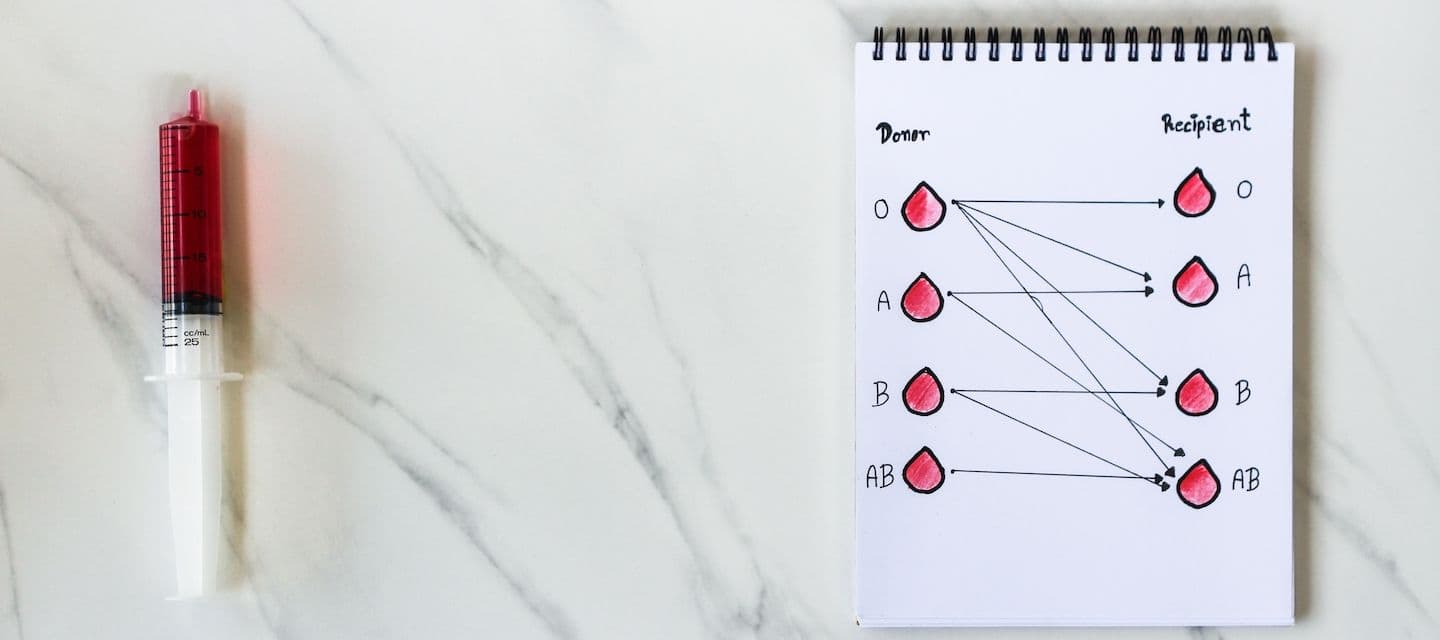Ethnic Distribution Of Blood Types
Laboratory Tests
Obie Editorial Team

Blood types and ethnicity
There are four main blood types: O, A, B, and AB and two Th factors, positive or negative. Most people are either A positive or O positive and the fewest are AB negative. Because blood types are genetic, they are inherited from the parents, blood types have different racial and ethnic differences. The majority of people in the world and across various ethnicities have Rh+ blood type. Subsaharan African populations have a 97-99% Rh+ factor. East Asian communities have 93-97% Rh+ blood. Rh factor is a big determinant in both fertility and pregnancy. If you're Rh-negative, you will need to take certain precautions during your pregnancy because an Rh positive fetus can conceivably be affected if the RH negative mother has previously been exposed to Rh positve blood and creates antibodies that cross the placenta and attack the fetus' RH positive blood.
Check out blood type and Rh factor by country!
Distribution of blood types
| O | A | B | AB | |
| Aborigines | 61 | 39 | 0 | 0 |
| Ainu (Japan) | 17 | 32 | 32 | 18 |
| Albanians | 38 | 43 | 13 | 6 |
| Grand Andamanese | 9 | 60 | 23 | 9 |
| Arabs | 34 | 31 | 29 | 6 |
| Armenians | 31 | 50 | 13 | 6 |
| Asian (in USA ) | 40 | 28 | 27 | 5 |
| Austrians | 36 | 44 | 13 | 6 |
| Bantus | 46 | 30 | 19 | 5 |
| Basques | 51 | 44 | 4 | 1 |
| Belgians | 47 | 42 | 8 | 3 |
| Bororo (Brazil) | 100 | 0 | 0 | 0 |
| Brazilians | 47 | 41 | 9 | 3 |
| Bulgarians | 32 | 44 | 15 | 8 |
| Burmese | 36 | 24 | 33 | 7 |
| Buryats (Siberia) | 33 | 21 | 38 | 8 |
| Bushmen | 56 | 34 | 9 | 2 |
| Chinese-Canton | 46 | 23 | 25 | 6 |
| Chinese-Peking | 29 | 27 | 32 | 13 |
| Chuvash | 30 | 29 | 33 | 7 |
| Czechs | 30 | 44 | 18 | 9 |
| Danes | 41 | 44 | 11 | 4 |
| Dutch | 45 | 43 | 9 | 3 |
| Egyptians | 33 | 36 | 24 | 8 |
| English | 47 | 42 | 9 | 3 |
| Eskimos (Alaska) | 38 | 44 | 13 | 5 |
| Eskimos (Greenland) | 54 | 36 | 23 | 8 |
| Estonians | 34 | 36 | 23 | 8 |
| Ethiopians | 43 | 27 | 25 | 5 |
| Fijians | 44 | 34 | 17 | 6 |
| Finns | 34 | 41 | 18 | 7 |
| French | 43 | 47 | 7 | 3 |
| Georgians | 46 | 37 | 12 | 4 |
| Germans | 41 | 43 | 11 | 5 |
| Greeks | 40 | 42 | 14 | 5 |
| Gypsies (Hungary) | 29 | 27 | 35 | 10 |
| Hawaiians | 37 | 61 | 2 | 1 |
| Hindus (Bombay) | 32 | 29 | 28 | 11 |
| Hungarians | 36 | 43 | 16 | 5 |
| Icelanders | 56 | 32 | 10 | 3 |
| Indians (India ) | 37 | 22 | 33 | 7 |
| Indians (USA) | 79 | 16 | 4 | 1 |
| Irish | 52 | 35 | 10 | 3 |
| Italians (Milan) | 46 | 41 | 11 | 3 |
| Japanese | 30 | 38 | 22 | 10 |
| Jews (Germany) | 42 | 41 | 12 | 5 |
| Jews (Poland) | 33 | 41 | 18 | 8 |
| Kalmuks | 26 | 23 | 41 | 11 |
| Kikuyu (Kenya) | 60 | 19 | 20 | 1 |
| Koreans | 28 | 32 | 31 | 10 |
| Lapps | 29 | 63 | 4 | 4 |
| Latvians | 32 | 37 | 24 | 7 |
| Lithuanians | 40 | 34 | 20 | 6 |
| Malasians | 62 | 18 | 20 | 0 |
| Maoris | 46 | 54 | 1 | 0 |
| Mayas | 98 | 1 | 1 | 1 |
| Moros | 64 | 16 | 20 | 0 |
| Navajo (N. Am.) | 73 | 27 | 0 | 0 |
| Nicobarese | 74 | 9 | 15 | 1 |
| Norwegians | 39 | 50 | 8 | 4 |
| Papuas (New Guinea) | 41 | 27 | 23 | 9 |
| Persians | 38 | 33 | 22 | 7 |
| Peru (Indians) | 100 | 0 | 0 | 0 |
| Philippinos | 45 | 22 | 27 | 6 |
| Poles | 33 | 39 | 20 | 9 |
| Portuguese | 35 | 53 | 8 | 4 |
| Rumanians | 34 | 41 | 19 | 6 |
| Russians | 33 | 36 | 23 | 8 |
| Sardinians | 50 | 26 | 19 | 5 |
| Scotts | 51 | 34 | 12 | 3 |
| Serbians | 38 | 42 | 16 | 5 |
| Shompen (Nicobars) | 100 | 0 | 0 | 0 |
| Slovaks | 42 | 37 | 16 | 5 |
| South Africans | 45 | 40 | 11 | 4 |
| Spanish | 38 | 47 | 10 | 5 |
| Sudanese | 62 | 16 | 21 | 0 |
| Swedes | 38 | 47 | 10 | 5 |
| Swiss | 40 | 50 | 7 | 3 |
| Tartars | 28 | 30 | 29 | 13 |
| Thais | 37 | 22 | 33 | 8 |
| Turks | 43 | 34 | 18 | 6 |
| Ukrainians | 37 | 40 | 18 | 6 |
| United Kingdom (GB) | 47 | 42 | 8 | 3 |
| USA (US blacks) | 49 | 27 | 20 | 4 |
| USA (US whites) | 45 | 40 | 11 | 4 |
| USA Blood Types | 44 | 42 | 10 | 4 |
| Vietnamese | 42 | 22 | 30 | 5 |
Why does knowing your blood type matter?
Blood type is a measurement that may go unnoticed for most of your life unless you need a blood transfusion or other surgery or medical condition. It may also become a concern when you get pregnant. In fact, when trying to get pregnant you should consider finding out your blood type. Studies have shown that certain blood types play a role in fertility and the ease/difficulty in getting pregnant. In fact, women with blood type O are thought to have a more difficult time getting pregnant than women with any other blood type, especially type A.
Once you're already pregnant, your first prenatal visit will likely include a blood typing test in the battery of blood tests taken.
Read More












